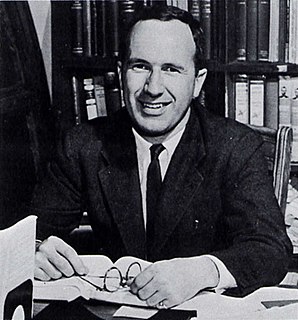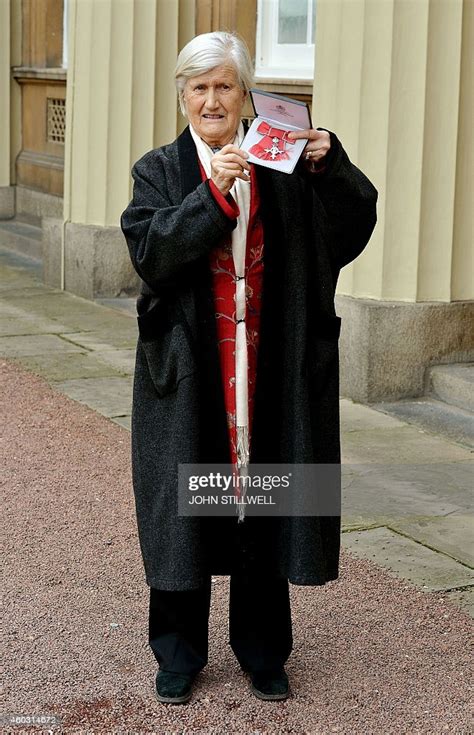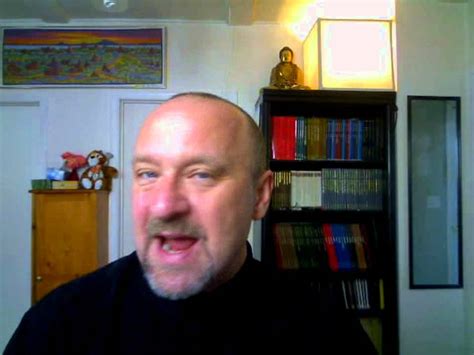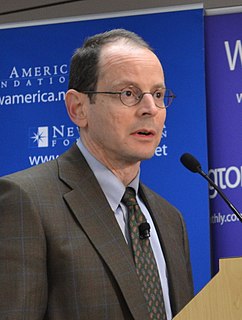Top 831 Contrast Quotes & Sayings - Page 14
Explore popular Contrast quotes.
Last updated on April 21, 2025.
Food safety oversight is largely, but not exclusively, divided between two agencies, the FDA and the USDA. The USDA mostly oversees meat and poultry; the FDA mostly handles everything else, including pet food and animal feed. Although this division of responsibility means that the FDA is responsible for 80% of the food supply, it only gets 20% of the federal budget for this purpose. In contrast, the USDA gets 80% of the budget for 20% of the foods. This uneven distribution is the result of a little history and a lot of politics.
My body becomes a raft and there's this part of me that wants just literally to go with the flow. To close my eyes and let it take me. But I know sooner or later I will have to get out, that I need to feel the earth beneath my feet, between my toes - the splinters, the bindi-eyes, the burning sensation of hot dirt, the sting of cuts, the twigs, the bites, the heat, the discomfort, the everything. I need desperately to feel it all, so when something wonderful happens, the contrast will be so massive that I will bottle the impact and keep it for the rest of my life.
My brother the vampire, whose kiss was a slow death sentence, had a stable and loving relationship with a girl who was crazy about him. By contrast, I could barely talk to a woman, at least about anything pertaining to a relationship. Given that my only long-term girlfriends had faked their own death, died, and broken free of enslaving enchantments to end the relationship, the empirical evidence seemed to indicate that he knew something I didn't. Keep your life tonight, Harry. Complicate it tomorrow.
Take three conscious breaths. Just pause. Let it be a contrast to being all caught up. Let it be like popping a bubble. Let it be just a moment in time, and then go on. Maybe you are on your way to whatever you need to do for the day. You are in your car, or on the bus, or standing in line. But you can still create that gap by taking three conscious breaths and being right there with the immediacy of your experience, right there with whatever you are seeing, with whatever you are doing, with whatever you are feeling.
How much reverence has a noble man for his enemies!--and such reverence is a bridge to love.--For he desires his enemy for himself, as his mark of distinction; he can endure no other enemy than one in whom there is nothing to despise and very much to honor! In contrast to this, picture "the enemy" as the man of ressentiment conceives him--and here precisely is his deed, his creation: he has conceived "the evil enemy," "the Evil One," and this in fact is his basic concept, from which he then evolves, as an afterthought and pendant, a "good one"--himself!
To speak only of food inspections: the United States currently imports 80% of its seafood, 32% of its fruits and nuts, 13% of its vegetables, and 10% of its meats. In 2007, these foods arrived in 25,000 shipments a day from about 100 countries. The FDA was able to inspect about 1% of these shipments, down from 8% in 1992. In contrast, the USDA is able to inspect 16% of the foods under its purview. By one assessment, the FDA has become so short-staffed that it would take the agency 1,900 years to inspect every foreign plant that exports food to the United States.
With genetic engineering, we will be able to increase the complexity of our DNA, and improve the human race. But it will be a slow process, because one will have to wait about 18 years to see the effect of changes to the genetic code. By contrast, computers double their speed and memories every 18 months. There is a real danger that computers will develop intelligence and take over. We urgently need to develop direct connections to the brain so that computers can add to human intelligence rather than be in opposition.
Mathematical thinking is not the same as doing mathematics - at least not as mathematics is typically presented in our school system. School math typically focuses on learning procedures to solve highly stereotyped problems. Professional mathematicians think a certain way to solve real problems, problems that can arise from the everyday world, or from science, or from within mathematics itself. The key to success in school math is to learn to think inside-the-box. In contrast, a key feature of mathematical thinking is thinking outside-the-box - a valuable ability in today's world.
If you're going to buy something which compounds for 30 years at 15% per annum and you pay one 35% tax at the very end, the way that works out is that after taxes, you keep 13.3% per annum. In contrast, if you bought the same investment, but had to pay taxes every year of 35% out of the 15% that you earned, then your return would be 15% minus 35% of 15%-or only 9.75% per year compounded. So the difference there is over 3.5%. And what 3.5% does to the numbers over long holding periods like 30 years is truly eye-opening.
The image the Republicans have of themselves needs the image they have of the Democrats to bring it into sharp focus. The Democrats are plainly a disreputable crowd; the Republicans, by contrast, are men of standing and sobriety. Many a middle-class American in many a small town has had to explain painfully why he chose to be a Democrat. No middle-class American need feel uneasy as a Republican. Even when he is a minority--for example, among the heathen on a college campus--he can, like any white, Anglo-Saxon Protestant, warm himself before his little fire of self-esteem.
If top marginal income tax rates are set too high, they discourage productive economic activity. In the limit, a top marginal income tax rate of 100 percent would mean that taxpayers would gain nothing from working harder or investing more. In contrast, a higher top marginal rate on consumption would actually encourage savings and investment. A top marginal consumption tax rate of 100 percent would simply mean that if a wealthy family spent an extra dollar, it would also owe an additional dollar of tax.
There are clear differences between child and adult artistic activity. While the child may be aware that he is doing things differently from others, he does not fully appreciate the rules and conventions of symbolic realms; his adventurousness holds little significance. In contrast, the adult artist is fully cognizant of the norms embraced by others; his willingness, his compulsion, to reject convention is purchased, at the very least, with full knowledge of what he is doing and often at considerable psychic cost to himself.
One evening, when we were already resting on the floor of our hut, dead tired, soup bowls in hand, a fellow prisoner rushed in and asked us to run out to the assembly grounds and see the wonderful sunset. Standing outside we saw sinister clouds glowing in the west and the whole sky alive with clouds of ever-changing shapes and colors, from steel blue to blood red. The desolate grey mud huts provided a sharp contrast, while the puddles on the muddy ground reflected the glowing sky. Then, after minutes of moving silence, one prisoner said to another, "How beautiful the world could be.
The first western gardens were those in the Mediterranean basin. There in the desert areas stretching from North Africa to the valleys of the Euphrates, the so-called cradle of civilization, where plants were first grown for crops by settled communities, garden enclosures were also constructed. Gardens emphasized the contrast between two separate worlds: the outer one where nature remained awe-inspiringly in control and an inner artificially created sanctuary, a refuge for man and plants from the burning desert, where shade trees and cool canals refreshed the spirit and ensured growth.
Dissident Natan Sharansky writes that there are two kinds of states - “fear societies” and “free societies.”… The two societies make up two kinds of consciousness. The consciousness derived of oppression is despairing, fatalistic, and fearful of inquiry. It is mistrustful of the self and forced to trust external authority. It is premised on a dearth of self-respect. It is cramped …
In contrast, the consciousness of freedom … is one of expansiveness, trust of the self, and hope. It is a consciousness of limitless inquiry … It builds up in a citizen a wealth of self-respect.
Drug warriors' staunch opposition to needle exchanges to prevent the spread of HIV in addicts delayed the programs' widespread introduction in most states for years. A federal ban on funding for these programs wasn't lifted until 2009. Contrast this with what happened in the U.K. At the peak of the AIDS epidemic in the mid-1990s, the HIV infection rate in IV drug users in the U.K. was about 1%. In New York City, the American epicenter, that figure was 50%. The British had introduced widespread needle exchange in 1986. That country had no heterosexual AIDS epidemic.
It's easy to see why conservatives would be salivating at the thought of a Hillary primary challenge. Presidents who face serious primary challenges—Ford, Carter, Bush I—almost always lose. The last president who lost reelection without a serious primary challenge, by contrast, was Herbert Hoover. But in truth, the chances that Obama will face a primary challenge are vanishingly slim, and the chances that he will lose reelection only slightly higher. No wonder conservatives are fantasizing about Hillary Clinton taking down Barack Obama. If she doesn't, it's unlikely they will.
To me, making a horror movie is about how you can present similar genre familiarities, but present them a little bit differently. Part of what interests me is the nonchalant realism of it, because you don't get that in the big studio horror movies. I like seeing someone walk around a house and sift through the drawers, and things like that, because that reminds me of what I would do, and of weird personal choices that people would make. That, in contrast to seeing someone get chased with a knife, makes it all the more interesting.
One of the great weaknesses of the progressive, as distinct from the religious, mind, is that it has no awareness of truth as such; only of truth in terms of enlightened expediency. The contrast is well exemplified in two exact contemporaries - Simone Weil and Simone de Beauvoir; both highly intelligent and earnestly disposed. In all the fearful moral dilemmas of our time, Simone Weil never once went astray, whereas Simone de Beauvoir, with I am sure the best of intentions, has found herself aligned with apologists for some of the most monstrous barbarities and falsehoods of history.
It is unlikely that many people will take to heart the conclusion that coming into existence is always a harm. It is even less likely that many people will stop having children. By contrast, it is quite likely that my views either will be ignored or will be dismissed. As this response will account for a great deal of suffering between now and the demise of humanity, it cannot plausibly be thought of as philanthropic. That is not to say that it is motivated by any malice towards humans, but it does result from a self-deceptive indifference to the harm of coming into existence.
It's not till sex has died out between a man and a woman that they can really love. And now I mean affection. Now I mean to be fond of (as one is fond of oneself) -to hope, to be disappointed, to live inside the other heart. When I look back on the pain of sex, the love like a wild fox so ready to bite, the antagonism that sits like a twin beside love, and contrast it with affection, so deeply unrepeatable, of two people who have lived a life together (and of whom one must die) it's the affection I find richer. It's that I would have again. Not all those doubtful rainbow colors.
Pornographic or erotic stories and pictures are worse than filthy or polluted food. The body has defenses to rid itself of unwholesome food. With a few fatal exceptions, bad food will only make you sick but do no permanent harm. In contrast, a person who feasts upon filthy stories or pornographic or erotic pictures and literature records them in this marvelous retrieval system we call a brain. The brain won't vomit back filth. Once recorded, it will always remain subject to recall, flashing its perverted images across your mind and drawing you away from the wholesome things in life.
Leave an extrovert alone for two minutes and he will reach for his cell phone. In contrast, after an hour or two of being socially on, we introverts need to turn off and recharge. My own formula is roughly two hours alone for every hour of socializing. This isn't antisocial. It isn't a sign of depression. It does not call for medication. For introverts, to be alone with our thoughts is as restorative as sleeping, as nourishing as eating. Our motto: I'm okay, you're okay-in small doses.
Our struggle to put first things first can be characterized by the contrast between two powerful tools that direct us: the clock and the compass. The clock represents our commitments, appointments, schedules, goals, activities - what we do with, and how we manage our time. The compass represents our vision, values, principles, mission, conscience, direction - what we feel is important and how we lead our lives. In an effort to close the gap between the clock and the compass in our lives, many of us turn to the field of "time management."
Bitumen is junk energy. A joule, or unit of energy, invested in extracting and processing bitumen returns only four to six joules in the form of crude oil. In contrast, conventional oil production in North America returns about 15 joules. Because almost all of the input energy in tar sands production comes from fossil fuels, the process generates significantly more carbon dioxide than conventional oil production.
Science is like society and trade, in resting at bottom upon a basis of faith. There are some things here, too, that we can not prove, otherwise there would be nothing we can prove. Science is busy with the hither-end of things, not the thither-end. It is a mistake to contrast religion and science in this respect, and to think of religion as taking everything for granted, and science as doing only clean work, and having all the loose ends gathered up and tucked in. We never reach the roots of things in science more than in religion.
Gentlemen, the time is coming when there will be two great classes, Socialists, and Anarchists. The Anarchists want the government to be nothing, and the Socialists want the government to be everything. There can be no greater contrast. Well, the time will come when there will be only these two great parties, the Anarchists representing the laissez faire doctrine and the Socialists representing the extreme view on the other side, and when that time comes I am an Anarchist.
In the short stories - if I can make a very lumpy contrast - in the short stories I feel like the lives of the people have a kind of prior desperation and a prior need and my longing is for the story and their lives to somehow come together, even if not finally or forever, to face something; and it felt like a lot of the time with the essays I was wading into situations where there was an assumption of finality of understanding, and I felt like I could wade into any understood moment and tear it apart and make it fall apart.
I know that in many things I am not like others, but I do not know what I really am like. Man cannot compare himself with any other creature; he is not a monkey, not a cow, not a tree. I am a man. But what is it to be that? Like every other being, I am a splinter of the infinite deity, but I cannot contrast myself with any animal, any plant or any stone. Only a mythical being has a range greater than man's. How then can man form any definite opinions about himself?.
Poetry restores language by breaking it, and I think that much contemporary writing restores fantasy, as a genre of writing in contrast to a genre of commodity or a section in a bookstore, by breaking it. Michael Moorcock revived fantasy by prying it loose from morality; writers like Jeff VanderMeer, Stepan Chapman, Lucius Shepard, Jeffrey Ford, Nathan Ballingrud are doing the same by prying fantasy away from pedestrian writing, with more vibrant and daring styles, more reflective thinking, and a more widely broadcast spectrum of themes.
In a way, human beings have never been part of the natural order; we're not biological in the normal sense. Normal biological animals stop eating when they're not hungry and stop breeding when there is no sense in breeding. By contrast, human beings are what I think of as "biomythic" animals: we're controlled largely by the stories we tell. When we get the story wrong, we get out of harmony with the rest of the natural order. For a long time, our unnatural beahvior didn't threaten the natural world, but now it does.
But keeping secrets is a discipline. I never use to think of myself as a good liar, but after having had some practice I had adopted the prevaricator's credo that one doesn't so much fabricate a lie as marry it. A successful lie cannot be brought into this world and capriciously abandoned; like any committed relationship it must be maintained, and with far more devotion than the truth, which carries on being carelessly true without any help. By contrast, my lie needed me as much as I needed it, and so demanded the constancy of wedlock: Till death do us part.
Liberals say this over and over and over again to hide the actual history, which is why I go through the specifics on the big segregationists in the United States Senate, the ones who signed the Southern Manifesto and the ones who voted against the 1964 Civil Rights Act. There's a panoply of issues to consider. The first time they objected to the Federal government doing something was when it came to civil rights legislation. This is in stark contrast to the very few Republicans who voted against the '64 Civil Rights Act.
No one has yet discovered or ever shall discover what God is in His nature and essence... we shall, in time to come, 'know as we are known' (I Cor 13:12). But for the present what reaches us is a scant emanation, as it were a small beam from a great light - which means that any one who 'knew' God or whose 'knowledge' of Him has been attested to in the Bible, has a manifestly more brilliant knowledge than others not equally illuminated. This superiority was reckoned knowledge in the full sense, not because it really was so, but by the contrast of relative strengths.
Trump conducts meetings and actually tries to get something done rather than just have the meeting and rather than just announce a framework and rather than just touch on bullet points or outline points and to speak in large terms about what our four-year objectives are. My guess is that Trump gets in there, rolls up the sleeves, and starts talking about actual work that's going to be done, things that he wants to do, things he believes the American people elected him to do. And I think it probably is a stark contrast for people who basically work in a bureaucracy.
Compare and contrast: Donald Trump is going out thanking the voters who supported him. You look at his cabinet picks. They are not donors. These three military guys are not being chosen because they're being paid back for donating to Trump. He's picking them because they're the best. And what's Hillary Clinton doing? She is thanking the money people. She's not thanking supporters. She's not thanking people who believed in her for her ideas and substance and her personally.
But again and again, we should reflect back to the darkness of the cocoon. In order to inspire ourselves forward, we must look back to see the contrast with the place we came from. You see, we cannot reject the world of the cocoon - which out which we may create a new cocoon. When we see the suffering that occured in the old cocoon, that inspires us to go forward in our journey of warriorship. It is a journey that is unfolding within us.
I think the contrast between these two in the professional world of cinema mattered to me. One who has reached the ultimate point of being a star, who knows how to do everything very well, facing another person who would throughout the making of the film transfer his anxiety to both of us, to me and to Juliette, as to whether or not he would be capable of fulfilling his role. This in itself created a challenge that was actually very good for me, since I hadn't ever counterposed two such performers before, creating that challenge between someone who knows their part and someone who doesn't.
... In contrast to the "banality of evil," which posits that ordinary people can be responsible for the most despicable acts of cruelty and degradation of their fellows, I posit the "banality of heroism," which unfurls the banner of the heroic Everyman and Everywoman who heed the call to service to humanity when their time comes to act. When that bell rings, they will know that it rings for them. It sounds a call to uphold what is best in human nature that rises above the powerful pressures of Situation and System as the profound assertion of human dignity opposing evil.
The differing opinions regarding the gospel are often categorized as different variations of the same truth, or coming at the same truth from different angles, or even emphasizing different aspects of the same truth. This fails to recognize that the different 'variations' are often altogether different gospels. The Reformed gospel is completely different from the Roman Catholic gospel; a faith-based gospel is in direct contradiction to a works-based gospel; a truly evangelical gospel stands in contrast to an ultracharismatic gospel.
Having spent time around "sinners" and also around purported saints, I have a hunch why Jesus spent so much time with the former group: I think he preferred their company. Because the sinners were honest about themselves and had no pretense, Jesus could deal with them. In contrast, the saints put on airs, judged him, and sought to catch him in a moral trap. In the end it was the saints, not the sinners, who arrested Jesus.
Apple was very close to bankruptcy and to irrelevance [but] you learn a lot about life through death, and I learnt a lot about vital corporations by experiencing a non-vital corporation. You would have thought that, when what stands between you and bankruptcy is some money, your focus would be on making some money, but that was not [Steve Jobs’] preoccupation. His observation was that the products weren’t good enough and his resolve was, we need to make better products. That stood in stark contrast to the previous attempts to turn the company around.
Among other grand achievements, F. A. Hayek had a remarkable career pointing out the flaws in collectivism. One of his keenest insights was that, paradoxically, any collectivist system necessarily depends on one individual (or small group) to make key social and economic decisions. In contrast, a system based on individualism takes advantage of the aggregate, or 'collective,' information of the whole society; through his actions each participant contributes his own particular, if incomplete, knowledge-information that could never be tapped by the individual at the head of a collectivist state.
As a mode of perception that often becomes a style of life, paranoia weaves around the vulnerable self or group an air-tight metaphysic and world view. Paranoia is an antireligious mysticism based on the feeling or perception that the world in general, and others in particular, are against me or us. Reality is perceived as hostile. By contrast, the religious mystic experiences the ground of being as basically friendly to the deepest needs of the self. That which is unknown, strange, or beyond our comprehension is with and for rather than against us.
"Biblical theology" refers to something more precise than theology that is faithful to the Bible. It might be helpful to draw a contrast: at the risk of oversimplification, systematic theology tends to organize theology topically and with an eye cast on its contemporary relevance, while biblical theology tends to organize the same biblical material so that it is easier to see the distinctive contribution of each biblical book and human author, and to trace the trajectories of themes across the Bible so we see how the books of the Bible hold together.
My daughter is seven, and some of the other second-grade parents complain that their children don't read for pleasure. When I visit their homes, the children's rooms are crammed with expensive books, but the parent's rooms are empty. Those children do not see their parents reading, as I did every day of my childhood. By contrast, when I walk into an apartment with books on the shelves, books on the bedside tables, books on the floor, and books on the toilet tank, then I know what I would see if I opened the door that says 'PRIVATE--GROWNUPS KEEP OUT': a child sprawled on the bed, reading.
The world could not long ignore a holy church. The church is not despised because it is holy: it is despised because it is not holy enough. There is not enough difference between the people inside the church and those outside to be impressive. A church in which saints were as common as now they are rare would convict the world, if only by contrast. Sanctity cannot be ignored. Even a little bit is potent. So far from the gates of hell prevailing against it, it hammers on their triple steel.
Donald Trump is doing well. Trump is shocking everybody. He's shocking the Democrats. He's shocking the Republicans. He's shocking world. Contrast what's happened here in just the last three days with eight years of Barack Obama. We have had no apologizing. We've had no bowing. We've had a president of the United States actually tell the heads of state of countries where terrorism is rampant to get rid of it, to drive it out. We've had a president of the United States directly confront Iran where his our previous president threw everybody else overboard for Iran.
Science tries to answer the question: "How?" How do cells act in the body? How do you design an airplane that will fly faster thansound? How is a molecule of insulin constructed? Religion, by contrast, tries to answer the question: "Why?" Why was man created? Why ought I to tell the truth? Why must there be sorrow or pain or death? Science attempts to analyze how things and people and animals behave; it has no concern whether this behavior is good or bad, is purposeful or not. But religion is precisely the quest for such answers: whether an act is right or wrong, good or bad, and why.
Inclusivism: Whereas Exclusivists regard general revelation as informative only and special revelation as both informative and salvific, Inclusivists, by contrast, regard general revelation as both informative and salvific and special revelation as even mere deeply informative and even more effectively and widely salvific!














































